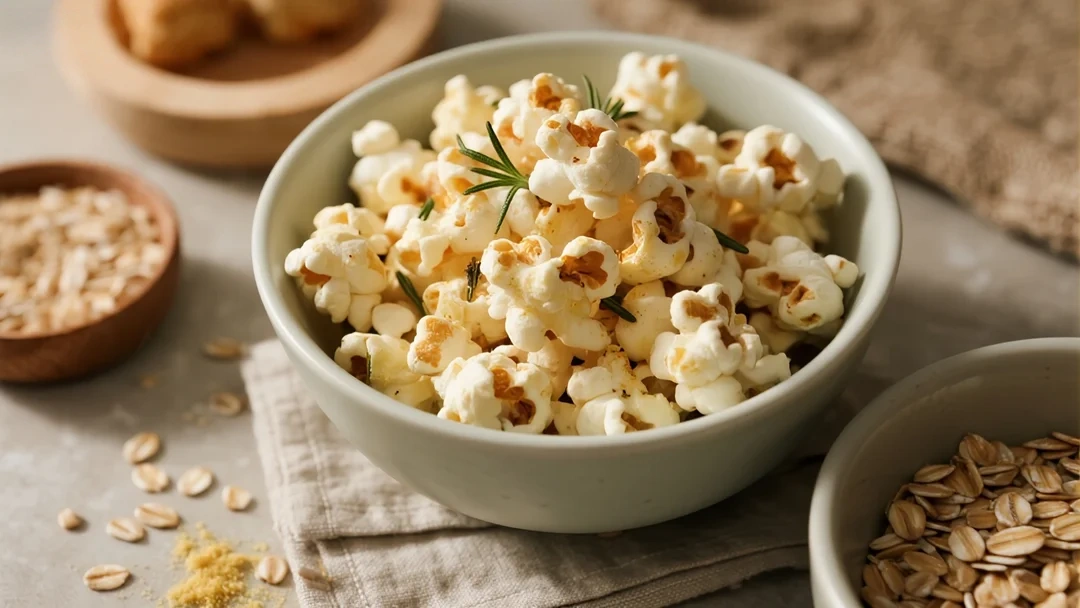Yes, popcorn can be a very healthy snack — but its nutritional value depends almost entirely on how it’s prepared and seasoned.
When made simply, popcorn is a whole grain that’s high in fiber, relatively low in calories, and even contains beneficial antioxidants. However, the popular versions loaded with butter, salt, sugar, or artificial flavorings can turn this healthy snack into a high-calorie, less nutritious choice.
Health Benefits of Plain Popcorn
- •Whole-Grain Goodness:Popcorn is a 100% whole grain, meaning it contains the bran, germ, and endosperm. This makes it rich in dietary fiber, which aids digestion, helps maintain healthy blood sugar levels, and keeps you feeling full longer.
- •High in Fiber:A typical 3-cup serving of air-popped popcorn provides around 3 grams of fiber — contributing to the daily recommended intake and supporting gut health.
- •Antioxidant Content:Popcorn contains polyphenols, antioxidants that help protect your cells from damage. These compounds are linked to reduced inflammation and better heart health.
- •Low in Calories:When air-popped without added fats, popcorn is volume-rich but low in calories. You can enjoy a large portion without consuming excessive energy, making it great for weight management.
- •Contains Nutrients:It offers vitamins and minerals such as B vitamins, iron, magnesium, phosphorus, and zinc — especially when minimally processed.
What to Watch Out For
- •Unhealthy Add-ons:Movie theater popcorn, caramel popcorn, or microwave versions soaked in butter and salt are often high in unhealthy fats, sodium, and added sugars. These additions can significantly increase calorie content and reduce overall nutritional value.
- •Microwave Popcorn Concerns:Some microwave popcorn brands use additives for flavor and preservation. Though many harmful chemicals (like diacetyl) have been phased out, it’s still wise to check the ingredient list and choose brands with simpler, more natural ingredients.
- •Portion Control:Even plain popcorn can be overeaten. While it’s filling, mindful eating is always helpful.
- •Choking Hazard:Popcorn is not recommended for very young children due to the risk of choking.
Summary Table: Is Popcorn Healthy?
| Type of Popcorn | Benefits | Considerations |
|---|---|---|
| Air-popped | High in fiber, low calorie, whole grain | May taste plain without seasoning |
| Lightly oil-popped | Can be healthy with good oils (e.g., olive or avocado oil) | Calories increase with added oil |
| Butter-topped | — | High in saturated fat and sodium |
| Caramel or candy-coated | — | High in sugar and calories |
| Microwave popcorn | Convenient | Often contains additives; check labels |
How to Keep Popcorn Healthy
- •Pop It Right: Use an air popper or stove-top method with a small amount of healthy oil.
- •Season Gently: Try nutritional yeast, herbs, cinnamon, a light sprinkle of sea salt, or a dash of chili powder instead of butter or sugar.
- •Read Labels: When buying pre-packaged popcorn, look for low-sodium and additive-free options.
- •Enjoy in Moderation: It’s a great snack — just be mindful of portions and toppings.
Popcorn can absolutely be part of a balanced diet. When prepared thoughtfully, it’s not only healthy but also satisfying and delicious!








